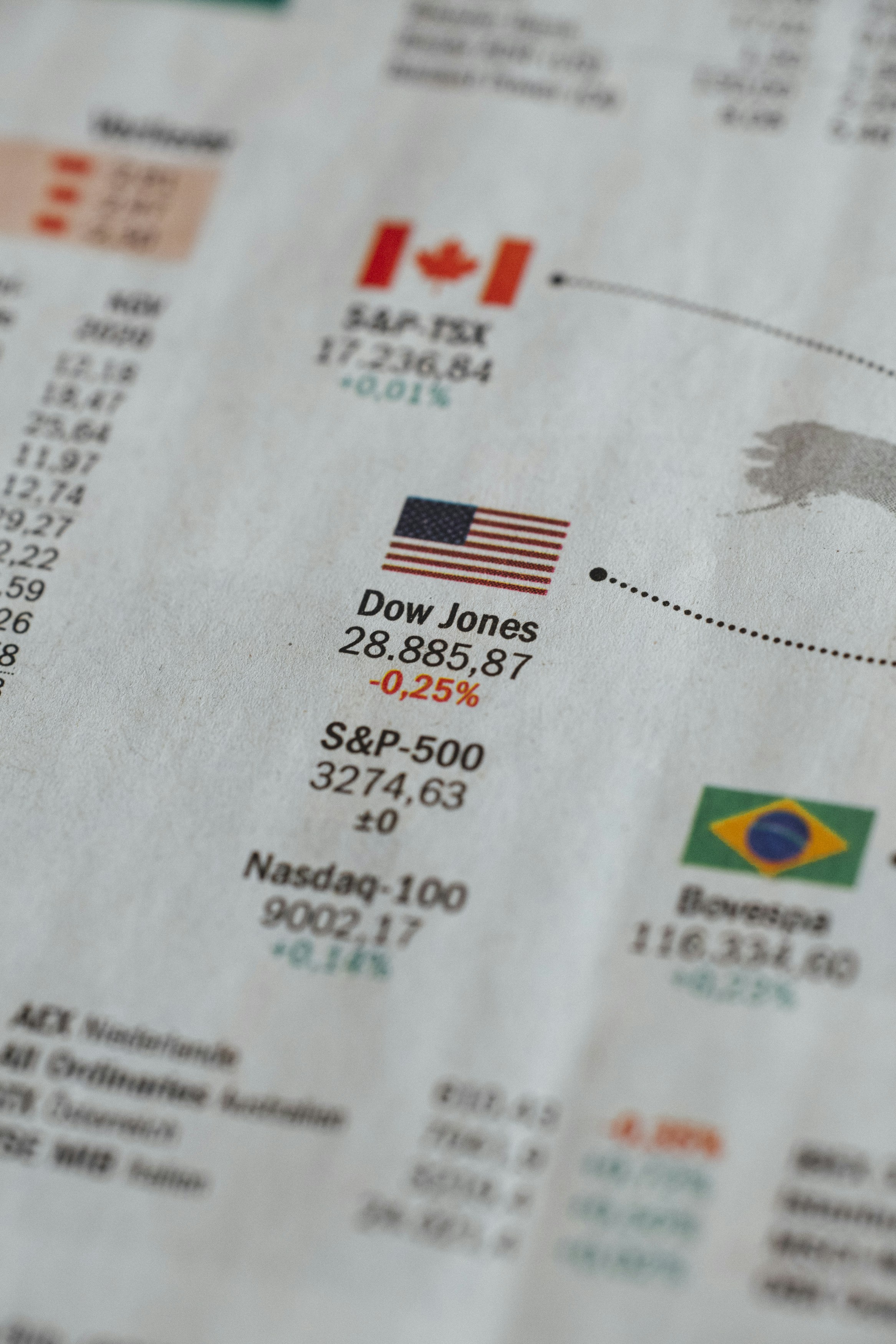
Introduction to First Financial Corp
First Financial Corp is a prominent player in the financial services sector, primarily focused on delivering a variety of banking products and services. Established over three decades ago, the company has carved a niche for itself, serving both retail and commercial clients with a commitment to excellence. With headquarters located in the heart of the Midwest, First Financial operates a network of branches across several states, making it an accessible choice for customers seeking reliable banking solutions.
The company’s history is marked by steady growth and adaptation to the evolving financial landscape. Initially starting as a community bank, First Financial has expanded its offerings through strategic mergers and acquisitions, which have bolstered its asset base and market reach. This growth strategy reflects its adaptability and forward-thinking approach in a competitive industry, allowing it to maintain a strong position while enhancing shareholder value.
First Financial Corp’s significance in the financial sector is underscored by its diverse portfolio, which includes traditional banking services, mortgage lending, investment management, and commercial financing. This diversity not only minimizes risk but also positions the company to capture various revenue streams. Recent performance trends demonstrate the corporation’s resilience, with earnings exhibitions reflecting a positive trajectory despite external economic challenges. This includes a commitment to innovation and investment in technology, ensuring that the organizational infrastructure supports its mission to provide exceptional service.
Moreover, the company’s solid financial health, marked by a robust balance sheet and prudent risk management practices, enhances its appeal to investors. With a history of dividend payments and a commitment to shareholder returns, First Financial continues to attract interest from stakeholders, further exemplified by the recent stock acquisition of nearly $10,000 by one of its directors. This acquisition signals confidence in the company’s future prospects and may prompt further interest in its stock performance.
Details of the Stock Acquisition
On October 15, 2023, a significant transaction occurred involving a director of First Financial Corp, who acquired a total of 253 shares of the company’s stock. This acquisition is noteworthy due to its strategic importance and implications in the broader financial landscape. The stock was purchased at a price of $39.13 per share, culminating in a financial commitment of $9,916.49. This purchase not only reflects the director’s confidence in the company’s future performance but also serves as a signal to investors regarding the stability and potential growth of First Financial Corp.
Direct purchases of stock by company insiders such as directors are often closely monitored by market analysts and investors. These transactions can indicate the insider’s belief in the company’s value and can serve as a barometer for other potential investors. The timing of this acquisition may also coincide with positive developments within the company or the overall market conditions that encourage confidence in First Financial Corp’s performance. This acquisition is a pivotal reminder of the importance of insider actions in guiding market perception and aiding investment decisions.
In the context of corporate governance, the purchase of stock by directors underscores their vested interest in the company. It aligns the directors’ financial incentives with the interests of shareholders, promoting a coherent strategy aimed at fostering shareholder value. Acquisitions such as this provide a glimpse into the confidence level of the company’s leadership and their belief in its future prospects. As such, this stock acquisition reflects not only a personal investment but also a broader message to the market about the company’s potential trajectory amidst the current economic landscape.
Understanding Insider Trading
Insider trading refers to the buying or selling of a company’s stock by individuals who have access to non-public, material information about the company. This practice is legally permissible under certain conditions but can raise ethical questions and has significant implications for investor confidence. When executives or directors, like those at First Financial Corp, purchase shares in their own company, it can signal to the market that they believe in the company’s future prospects. Such transactions often occur after earnings announcements or strategic decisions that they are privy to but have yet to disclose publicly.
For investors, these insider trades can serve as a valuable indicator. A purchase by a director or executive can create a perception of confidence in the company’s performance, which may lead to increased buying interest from the market. Investors may interpret these actions as signs that insiders expect improved financial results or that the company’s shares are undervalued. This behavior can, therefore, instill trust in existing and potential shareholders, potentially leading to an increase in stock price following such transactions.
However, insider trading also raises significant ethical considerations. Executives and directors have a fiduciary duty to act in the best interests of the shareholders. If such individuals trade on information not available to the public, it raises questions about fairness and transparency in the market. Regulatory bodies, such as the U.S. Securities and Exchange Commission (SEC), monitor insider transactions to ensure compliance with securities laws and prevent abuses. The ethical implications of these trades, coupled with their impact on investor sentiment, make insider trading a complex aspect of financial markets that warrants careful consideration.
Market Reaction and Analysis
The recent acquisition of $9,916 worth of stock by a director of First Financial Corp has elicited a noteworthy response from the market. Initially, the stock price experienced a modest uptick following the announcement, reflecting positive investor sentiment towards insider purchases. Such actions are often interpreted as a vote of confidence in the company’s future performance, potentially indicating that the director believes the stock is undervalued or that significant developments are on the horizon.
Several analysts weighed in on the implications of this acquisition. They pointed out that insider buying can serve as a bullish signal, suggesting that those with intimate knowledge of the firm are optimistic about its financial health and growth prospects. Following the news, trading volumes for First Financial Corp also increased, suggesting heightened interest among both retail and institutional investors. Market experts highlight that such behavior is often indicative of broader market trends, where insider transactions can sway public perception and influence decision-making among potential investors.
Moreover, sentiment analysis shows that social media discussions and financial news outlets have been predominantly positive. Investors appear to be reacting favorably, with many expressing their belief that the stock’s trajectory will continue upward, driven by both company fundamentals and insider confidence. However, it is essential to approach such reactions with caution, as market dynamics can rapidly change based on various external factors, including economic conditions and sector-specific news. The overall market context will remain critical in determining the long-term effects of this insider transaction on First Financial Corp’s stock price.
Historical Context of Director Purchases
Understanding the historical context of insider purchases at First Financial Corp can yield valuable insights into the company’s governance and investor sentiment. Over the past several years, there have been fluctuations in the volume and value of stock acquisitions made by directors and executives within the firm. Historical data indicates that such transactions often signal varying degrees of confidence in the company’s future performance, reflecting internal perceptions of its financial health.
In the years leading up to 2023, First Financial Corp’s directors have engaged in multiple stock purchases. Notably, during periods of market volatility, several executives increased their holdings, suggesting a strong belief in the company’s value proposition amidst external pressures. For instance, a significant uptick in director acquisitions was observed in 2021, following an announcement of favorable quarterly results. This behavior points to a pattern where directors appear to align their financial interests with those of shareholders, fostering a level of trust among investors.
In contrast, during times of corporate restructuring or uncertainty, insider buying tends to decline. Directors may refrain from purchasing stocks when they anticipate challenges ahead. This behavior underscores a critical principle in corporate governance, where the actions of insider participants can serve as indicators of their expectations for the company’s trajectory. The recent acquisition of $9,916 in stock by a director thus fits within this established pattern, as it reflects an ongoing commitment to the company amid an evolving financial landscape.
The comparative analysis of past purchases provides a framework within which to evaluate current transactions, such as the recent stock acquisition. By examining the temporal dynamics of director purchases, we can better understand the underlying motivations, enhance investment strategies, and appreciate the broader implications of these insider activities within First Financial Corp.
Comparison with Industry Trends
The recent acquisition of $9,916 worth of stock by a director of First Financial Corp offers an intriguing lens through which to examine the broader trends within the financial services industry. Understanding whether this transaction is common, rare, or reflective of overarching market movements requires a closer look at recent data and behaviors observed across similar financial entities.
In the current economic landscape, director stock purchases have become increasingly prevalent among financial service firms. This trend is often interpreted as a positive signal, suggesting that executives have confidence in their company’s future performance. A recent survey of 2023 indicates that insider purchases have surged by approximately 12% compared to the previous year, as executives across various sectors are increasingly leveraging their own capital to acquire shares.
Furthermore, the timing of such acquisitions can also reflect market conditions. For instance, analysts have observed that many directors tend to purchase stock when they perceive the market or their company’s stock is undervalued. This is aligned with behavioral finance theories which posit that insiders have a unique understanding of internal operations and future outlooks. The recent performance of stock indices in the financial sector shows a trend of gradual recovery, leading some directors, including those at firms like First Financial Corp, to capitalize on these favorable conditions for their personal investments.
However, it’s pivotal to differentiate between isolated transactions and broader patterns. While the recent acquisition at First Financial may signal internal confidence, it should be considered alongside industry benchmarks that include the average percentage of stock owned by insiders and the frequency of such purchases by other financial institutions. This comparative approach will provide a more nuanced understanding of how First Financial’s directorate behaves in line with industry expectations and sentiments.
Legal Implications of Stock Trading by Executives
Stock trading by corporate executives carries substantial legal implications, primarily governed by insider trading laws. The Securities and Exchange Commission (SEC) enforces these regulations to ensure fair trading practices and to maintain market integrity. One fundamental rule is that corporate insiders, such as directors and executives, are prohibited from trading based on non-public, material information about their company. This prohibition aims to prevent an unfair advantage in the stock market and protects investors who do not have access to such sensitive information.
In addition to adhering to insider trading laws, executives must also comply with disclosure requirements. Public companies are obligated to report trades made by their insiders, typically via Form 4 submitted to the SEC within two business days following the transaction. This requirement serves to inform the investing public of executive trading activities, enabling shareholders to make more informed decisions. Failure to report trades promptly or to comply with insider trading regulations can result in severe penalties, including hefty fines and potential criminal charges.
Executives must also be aware of the implications associated with trading during designated blackout periods. Companies may establish such periods, typically occurring around earnings announcements, where executives are restricted from buying or selling shares. This measure is intended to prevent insider trading and safeguard the company’s reputation. Engaging in stock transactions during these blackout periods can also lead to additional consequences, including damage to personal and corporate credibility.
Overall, understanding the legal framework surrounding stock trading for corporate insiders is crucial. Executives must navigate this complex landscape carefully, as violations can not only lead to legal repercussions but also adversely affect investor trust and company standing. Thus, maintaining transparent trading practices is essential for compliance and promoting a fair marketplace.
Future Outlook for First Financial Corp
The recent acquisition of $9,916 in stock by a director of First Financial Corp raises several implications regarding the company’s future. Insider transactions often serve as a barometer for investor sentiment and market confidence. When insiders invest directly in their company’s stock, it can signal optimism about the firm’s prospects, suggesting that they anticipate growth and profitability. This type of insider confidence may foster a more favorable perception among external investors, which can ultimately lead to an increase in stock price and overall market value.
Furthermore, First Financial Corp operates in an increasingly competitive environment, particularly in the banking and financial services sector. The potential growth areas for the company could stem from the expansion of digital services and innovative financial products designed to meet the evolving needs of consumers. As the financial landscape shifts towards more technology-driven solutions, First Financial Corp has an opportunity to capitalize on these trends by investing in cutting-edge platforms and enhancing customer engagement through digital channels.
However, challenges persist. Regulatory pressures and economic uncertainties could hinder growth efforts. Increased scrutiny on financial institutions and potential changes in regulatory frameworks necessitate that First Financial Corp remain agile and compliant. Additionally, market trends such as rising interest rates and fluctuating consumer confidence may impact the company’s performance and influence its strategic decisions moving forward.
In essence, while insider stock acquisitions often point to positive expectations for future performance, external market conditions and internal strategic initiatives will significantly shape First Financial Corp’s trajectory. Investors and stakeholders will be watching closely to gauge how the company navigates these dynamic challenges and exploits new growth opportunities that arise in the financial sector.
Conclusion and Key Takeaways
Throughout this blog post, we have examined the recent stock acquisition by a director at First Financial Corp, amounting to $9,916. This transaction serves as an indicator of the director’s confidence in the company’s future and raises important questions about insider trading dynamics. By closely investigating the implications of such actions, investors can glean valuable insights into the company’s performance outlook.
Insider transactions, particularly those involving senior executives and board members, can provide significant clues about a firm’s expected direction. When directors purchase shares, it is often interpreted as a signal that they believe the stock is undervalued or that the company is on solid footing. Conversely, a sale might suggest a lack of confidence in future results or a potential need for liquidity. Therefore, this recent acquisition may be viewed as a bullish signal, potentially leading to renewed interest among investors.
Moreover, understanding the context of such stock purchases and sales is crucial. The significance of this director’s action is magnified when viewed alongside the company’s recent financial results, market trends, and broader economic indicators. As investors continue to evaluate their strategies, monitoring insider transactions like this one will remain a vital part of the decision-making process. By staying informed about these developments, stakeholders can better position themselves to navigate market fluctuations and capitalize on potential opportunities.
In summary, the $9,916 stock purchase by the First Financial Corp director has noteworthy implications for investors. It is essential to remain vigilant and incorporate insights from insider transactions into broader investment strategies, paving the way for more informed financial decisions moving forward.


